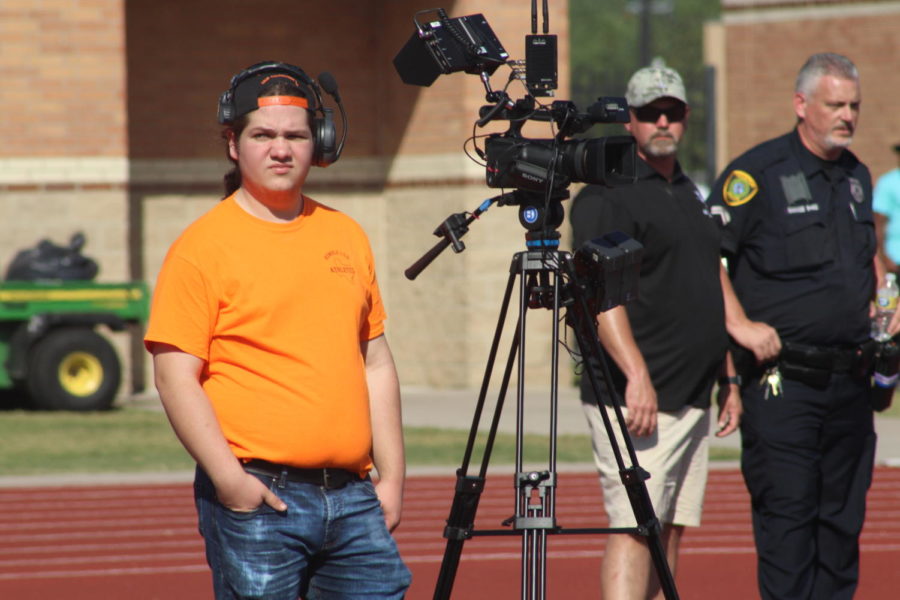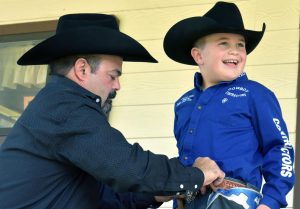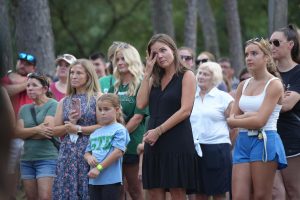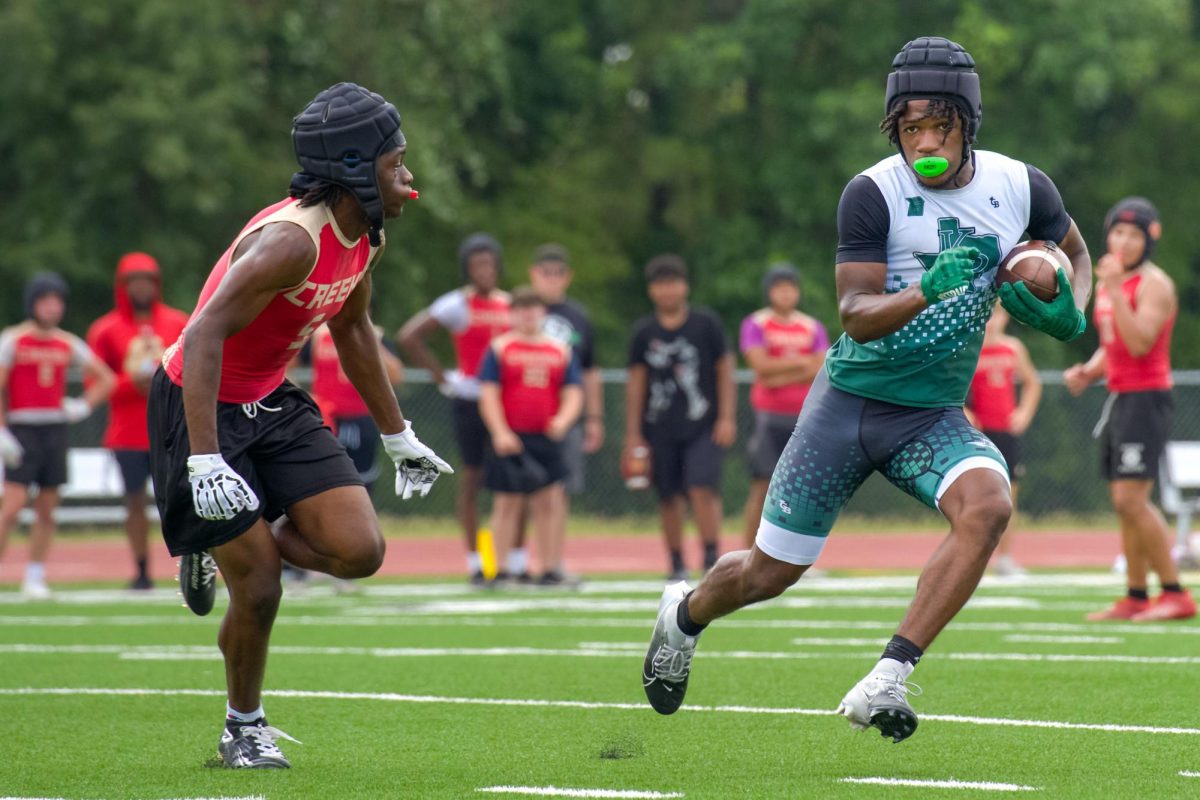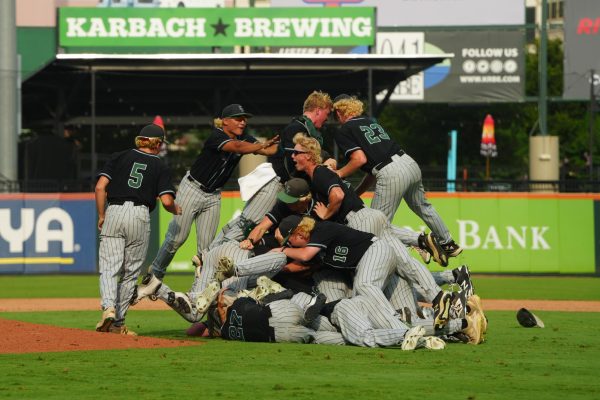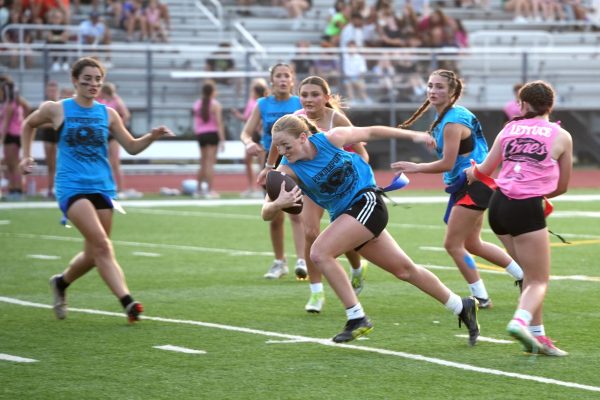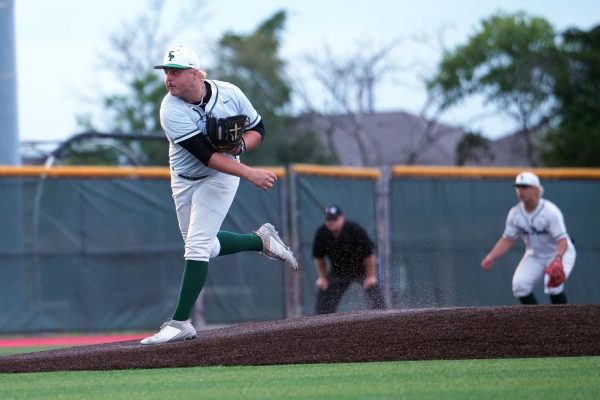Video classes offer students professional opportunities
Junior Liam Longo works on the cameras at Turner Stadium during the Baytown Lee football game on Oc. 15.
April 6, 2023
In Audio/Video Production, students work behind the scenes creating videos and even working at Turner Stadium with Texan Live. They film anything from football games to track meets.
“So at Turner, we film for the football games, track and soccer,” junior Charles Valcarce said. “We take cameras and we film the ball as it goes around. We can be up in the box area where we can do the replays, we can control the big monitor or we can even do ads.
“We do a lot of the things that go on to Texan Live and then that stuff gets broadcast on Texan Live and we can watch it through their website or you can watch that part of the game onto the big screen.”
Students in the class who work at Turner Stadium get paid by the hour.
“We make $10 an hour and a football game is four hours, but we earn double that for playoff games,” senior Rachel Hartley said.
With an introductory audio visual course and more advanced levels, students can be in Jason Watson’s classroom every year of high school.
“So we have several different levels of AV production – we have just regular AV Production, AV Production 2, and then practicum,” Watson said. “We start with teaching them actually with Photoshop, teaching them the concept of layering because we actually use a lot of layering and video and then we start going into video.”
The introductory lessons can be challenging, but they help set the foundation for students.
“I’m not going to lie, I thought it was gonna be something different,” Hartley said. “We started with Photoshop, and I was like, I do not like Photoshop. And then we moved on to something else and I was like, OK. I slowly warmed up to it.”
Watson started the program on campus 13 years ago. He likes to work with students to teach them skills they can use in the real world.
“So a lot of them can be camera operators for news stations when they get straight out of high school or they can work for a movie or TV show,” Watson said. “I’ve got former students who are TV broadcasters or executive producers on films. I even have a couple of YouTubers who graduated from KPark. They help out the channel Unspeakable. Two of his camera operators and editors and cameramen were students of mine.”
Each class teaches a different level of content, helping students get to the point where they are employable. In the first level, they learn how to edit in Adobe Premiere Pro and work on group projects.
The projects get more in-depth as you go and eventually students can work on major projects.
“Once you have the foundation down, you can be so creative,” Watson said. “If you like making YouTube videos, we can make those better. If you want to be a filmmaker, we can help you with that.”


